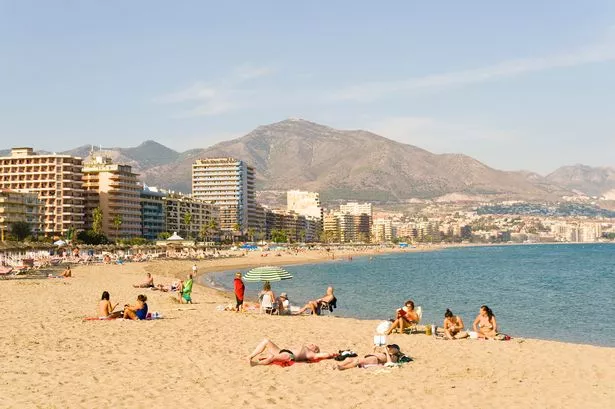If you're planning a holiday to Spain, there are some new rules you need to know about. These aren't just about passports and hand luggage, but also include limits on all-inclusive drinks at some resorts and big fines if you break the rules on the beach.
Spain is currently experiencing a severe drought, so many popular destinations like Tenerife and Costa del Sol have introduced tough new restrictions. Local authorities are also thinking about making nightlife restrictions stricter, which could mean bars and restaurants have to close earlier.
But don't worry, these changes haven't happened yet. Before you pack your suitcase, here are some of the most important rules you need to know.
Read next:
- Caribbean destination warning amid Foreign Office's new advice for UK holidaymakers
- The Antler Spring Sale travel bag that's £56 off and is perfect for Ryanair passengers
£1,000 beach fines

You could be fined £1,000 on the beach, reports the Mirror. A lesser-known rule on Benidorm's beaches could land you in hot water with fines up to £1,000. The popular holiday spot has a no-swim rule from midnight to 7am.
If you ignore this, you could be fined between 750 and 1,200 (£641 to £1,026). The same fine applies if you're caught sleeping or camping on the beach during these hours.
Smoking

In some parts of Spain, smoking on beaches is already banned. But new plans could bring even more rules against lighting up in public places.
Last year, officials said big changes were on the way for tobacco and e-cigarettes. A new plan, agreed by the Spanish Medical Association's General Assembly and several health groups, is called the Comprehensive Plan for the Prevention and Control of Smoking.
This plan suggests banning flavoured tobacco and vapes in public places like restaurant terraces, beaches and queues. It also proposes making tobacco pricier to discourage young people from smoking.
There might be even stricter rules for smoking on beaches, with Barcelona already banning it last summer. Not all Spanish beaches have these rules, but those that do can fine up to 2,000 euros - about £1,703. These new rules haven't started yet.
Proof of stay
If you're a Brit without an EU passport and are keen on a Spanish getaway, make sure to bring proof of accommodation. Anyone visiting from outside the Schengen zone, including returning UK residents, will need confirmation of their book or resident's address if staying at their own Spanish property.
For those stopping by at a local's house, your host will have to provide you with an "invitation letter" known as a "carta de invitation". Failure to present any of these documents could mean holiday plans in Spain come to an abrupt stop.
Spain entry rules

Big alterations to entering and exiting Spain rules are on the way too. The European Union has declared its plan for a new Entry/Exit System (EES), shaking up how British travellers push through Spanish airports.
From October 6 onwards, individuals can scan their passports at self-service points instead of receiving a stamp upon arrival or departure from any European country.
Of course, exceptions exist. Non-EU citizens carrying a residence card, those who have EU relatives, and non-EU residential permit holders related to non-EU individuals bestowed with similar freedom to travel like an EU national aren't subject to this protocol.
Six-drink limits

British holidaymakers who are off to Spanish islands like Magaluf, Mallorca, Palma or parts of Ibiza on an all-inclusive deal will have to follow strict rules about how much alcohol they can drink. You'll only get six drinks with your package - three at lunch and the rest at dinner.
These rules were brought in during 2020 to stop too much drinking in popular tourist spots. The Balearic Government has also put a stop to pub crawls, banned boat party ads in some areas, and set limits on when alcohol can be sold.
£85 daily spending rule
If you're travelling to Spain from the UK, you might need to prove that you have enough money for your trip. This rule applies to those flying from outside the EU and Schengen area. Tourists need to have at least 900 euros - roughly £750 in their bank account.
However, the Spanish Tourist Office has said that this amount can change and not every visitor will be checked.





















